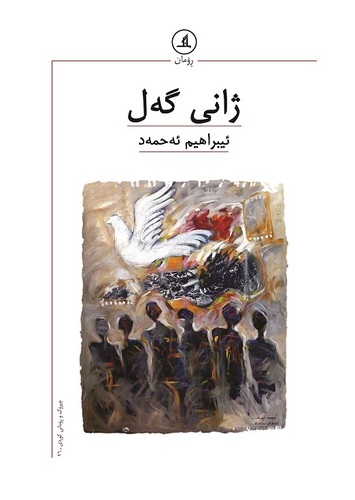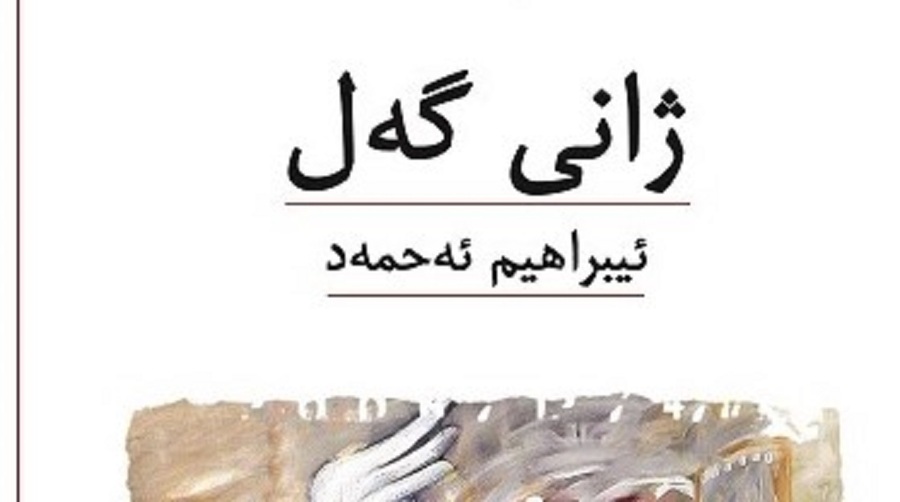As Jwamer comes back home after being released from jail and goes back to his cousin, Lawa's house, he knocks on the door and a little boy opens the door. The reader is waiting for Jwamer, Kale, and Hiwa to reunite. Jwamer also thinks he is his son, Hiwa, however, he finds out that he is Lawa and his wife's son and his family has gone back to Gulan village to visit relatives.
Here, a suspension that has almost faded away begins to be highlighted in the novel, and day by day this suspension (waiting) for Jwamer as the main character and the reader creates a kind of problem and question.
The writer has created Lawa's character in a way that one cannot understand what will happen next based on his behavior. The reader does not know how to judge his words about Kale and Hiwa's journey and when it will end and Jwamer will be able to see them again.
The more Jwamer insists on sending after them to come home, the more Lawa makes excuses and talks about the roads being blocked… the previous suspension also gets more highlighted for the reader after this and it takes them back to the time when Kale was in pain of giving birth and Jwamer left her. On the other hand, the reader knows about Hiwa which unbalances the reader's equations. If she had died giving birth, they would not have a son or Kale would not have sent him letters and …
The structure of Jani Gal is an intricate, strong, and thoughtful kind of structure. The present life of Jwamer is narrated by several narrow paths. First, the newly found friends of his. Through this, the writer talks about the political and social philosophy of the time when he was living in a totalitarian government. The ways to resist and deal with such a government are discussed through Jwamer and his new friends' reactions and behavior. That is, the writer chooses a path for his character to step in, in that city in order to be able to discuss the different views through this without disturbing the chains of events. For example, in the night they have a meeting, several view points are discussed. A part of them have overwhelmed themselves with drinking and partying every night to avoid the dominant political figures. Another group is thinking about political positions and they think they must do something for the sake of their people who are revolting and making movements and even fighting the government. The next group makes fun of both of these view points and … Here the writer has mentioned some new social subjects through Jwamer's relationship with these new friends of his. For example, women and their position in the family and the society. Some make fun of this idea but Jwamer insists on his views and he talks about women's role in society, as the beginning of the novel a conversation between Jwamer and Kale has been mentioned.

Kale prays to God to give them a son, but Jwamer disagrees and says if it is a girl, I will give a party in honor of her birthday.
In addition to this, the writer creates an atmosphere in that meeting night so that all the characters listen to Jwamer and his story of ten years of imprisonment hence, he can narrate that part of Jwamer's life.
The second path through which the writer narrates the main character's life is in relation to Jwamer's decision to find and return his wife and child. He finally decides to go himself and not wait for Lawa to do something. He leaves the city secretly and goes to Gulan Village to find his wife and son.
Although the writer of this novel was one of the leaders of that revolution he narrated in his novel, this short part of Jwamer's journey to that village is mentioned for some reasons. First, to end Jwamer's waiting for his family. Second, in this trip, some of the mistakes they made during the revolution are mentioned. That is the writer does not have a view that completely supports the revolution but it is rather a critical perspective. This fact is revealed in the two short pages that narrate Jwamer's journey.
The first stop is at a café on the road and meets a poor woman with her newly born child whose husband has been arrested by the revolution forces they assumed that man was a government spy since his café had not been bombarded while all the other parts of that area had been bombarded, however, at that same day he saw that café being bombarded and the woman got killed. The writer narrates this as one of the mistakes of the revolution forces. The second event is the part when he escapes from the café and goes to Gulan Awa and he gets arrested by the revolution forces for spying.
At this point, the reader as well as Jwamer feels angry and disgusted by the bold mistakes made by the revolution forces. A man who has spent ten years of his life in jail for cooperating with the revolution forces and now he is being arrested by those forces for being a spy of the government.
This complicated situation gets better and resolved when one of his newly found friends from that meeting, he previously had, sees him and helps him be free from the revolution prison. However, he finds out that Gulan Awa has been ruined completely and everybody has been killed. He feels devastated and returns to the city with great disappointment.

From here, the reader thinks the novel is about to end. When Jwamer talks with another character about politics, that man tells him that revolution means pain and we cannot gain our liberation without pains and sorrows, just like a woman who gives birth to a baby in pain. Similarly, the birth of a nation will not happen if there is no pain. We must help our nation to be born and make the nation's pain easier.
However, in the last chapter of this novel, the reader finds out that the writer is smarter and more capable than the reader's predictions and presumptions and the last strike of the novel is the strongest. A part that could not be ignored and not being narrated. Here, the reader finds out that contrary to their assumptions, the story suspension has not ended yet. Here, the reader figures out that the nation's pain, as an unsupported nation and always on suspension, is limitless.
Jwamer returns to the city. He breaks his previous vows. He had not been drunk since he had been freed from the jail. He begins to drink with Lawa. He decides to sell a piece of land he has and starts to work. He sells the land and leaves Lawa's house.
After a while, a revolutionary force brings a letter for Lawa. Jwamer had written that letter saying that he had to rejoin the revolution forces to avenge his innocent son and wife's lives and to help the revolution forces, too.
Lawa sends a letter in response. Jwamer is reading it in the midst of a very heavy battle. He tells him you did a good thing to go back there. However, I would like to tell you a long lie I have been telling you all this while. I kept this lie for ten long years. Kale and the baby died the same day she was giving birth to your son. All those letters I sent you were lies. The pictures were my son's not yours and …
"When he finished reading the letter, his friends called him: 'Where are you Jwamer? Where have been hiding? Come out, let's go, the bombarding is finished.
He put the letter in his shirt's pocket, wiped his tearful eyes, and rushed to join his friends."









